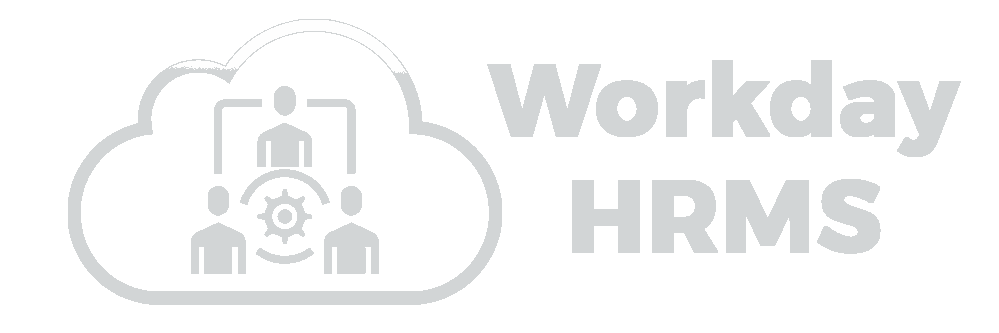Workday Tutorial
Hola!
Hello people! How are you doing right now? I’m hoping that everyone is having a good day today.
You have reached the updated version of my blog, which is now titled Workday Tutorial.
Permit me to provide you with a concise explanation of Workday.
Workday is a Web-Based system that provides quick, convenient access to accurate employee information. It is used by managers and HR staff to manage employee data and to perform HR functions such as payroll, benefits, and recruitment. Workday offers a self-service portal for employees to update their personal information and to access their HR records. The system is built on a robust security framework that includes role-based security, Single Sign-On (SSO), and auditing. Workday is hosted in a secure, scalable, and redundant environment.
Allow me to explain Workday Features

Some Features of Workday are:
- It is a cloud-based platform that helps organizations manage their finances, human resources, and other business processes.
- It offers users a self-service portal for managing their own information and workflows.
- It provides a real-time view of an organization’s data, which can be used to make informed decisions about business operations.
- It offers a variety of features and tools to help organizations automate and streamline their business processes.
Are you curious to know where Workday Technology is used?
Workday Technology is used in a variety of businesses, including healthcare, finance, and manufacturing. Workday provides a cloud-based platform that helps organizations manage their core business processes, including human resources, payroll, and benefits. Workday also offers a mobile app that allows employees to access their information and perform tasks on the go.
What are the Advantages of Workday?
There are many advantages of Workday, including:
- Workday provides a more comprehensive view of an employee than traditional HR systems. This allows managers to make more informed decisions about staffing and development.
- Workday’s real-time data updates give managers and employees alike a clear understanding of an employee’s current situation. This eliminates the need for time-consuming manual updates.
- Workday’s self-service features allow employees to update their own information, freeing up HR staff for other tasks.
- Workday’s analytics tools give managers the ability to track employee engagement and performance. This helps managers identify issues early and take corrective action.
- Workday’s mobile app allows managers and employees to access Workday from anywhere. This increases the flexibility and convenience of the system.
What are the Prerequisites to learn Workday?
The prerequisites for Workday will vary depending on the specific needs of the organization. However, some general prerequisites that may be required include:
- A clear understanding of the business goals and objectives that Workday is expected to help achieve.
- A detailed assessment of the current business processes and systems that will be impacted by Workday.
- A comprehensive understanding of the Workday functionality and how it can be configured to meet the specific needs of the organization.
- A well-designed data conversion strategy to ensure that data from the current systems is accurately transferred to Workday.
- A robust testing plan to ensure that Workday is configured correctly and that all data is accurately transferred.
- A dedicated team of resources with the necessary skills and knowledge to successfully implement Workday.
What is the Future Scope of Workday?
The future scope of Workday is to continue to grow as a leading provider of cloud-based enterprise software solutions. Workday is constantly innovating and expanding its product offerings to meet the needs of its growing customer base. In addition, Workday is investing in research and development to further improve its products and services.
What are the Modules of Workday explain in detail?
Workday has a number of modules which can be divided into four main groups:
- Core modules – these are the essential modules that all customers must have in order to use Workday. They include modules for human resources (HR), finance, and student management.
- Talent management – these modules help organizations manage and develop their workforce. They include modules for performance management, succession planning, and recruiting.
- Business intelligence and analytics – these modules provide organizations with data and insights to help them make better decisions. They include modules for reporting, dashboards, and analytics.
- Workforce collaboration – these modules help organizations improve communication and collaboration between employees. They include modules for social networking, document management, and project management.
What kind of Employment Possibilities does Workday Present?
There are a variety of job opportunities available with Workday, ranging from entry-level positions to executive-level jobs. Some of the most popular positions include:
- Product Manager
- Implementation Consultant
- Customer Success Manager
- Sales Engineer
- Support Engineer
- Solution Architect.
Companies that use Workday?
Workday is used by a variety of companies, including Adobe, Amazon, AT&T, Box, Cisco, Dell, eBay, Facebook, Google, Hilton, HP, IBM, Intel, LinkedIn, Marriott, Microsoft, Salesforce, Twitter, and Yahoo.
What are the Topics that Covered in Workday?
The topics that are covered in Workday are:
- An overview of Workday
- Workday features
- How to use Workday
- Workday security
- Workday administration
- Workday integration
- Workday Troubleshooting.
How important is it to have a Workday that is Structured and Predictable?
There are many reasons why Workday is so important. Here are some key reasons:
- Workday ensures that employees are paid correctly and on time. This is because Workday integrates with payroll systems to automatically calculate and process payroll. This means that there are no errors and delays in payments, which can cause major financial problems for employees.
- Workday also provides accurate and up-to-date information on employee absences, vacation days, and other time off. This is important for managers who need to know how much time their employees have available to work.
- Workday can help managers to identify issues and problems early. For example, if an employee is consistently late for work, Workday can generate a report that will alert the manager. This means that problems can be addressed quickly, before they become major issues.
- Workday can also help managers to plan for the future. For example, Workday can be used to track employee skills and training. This information can be used to identify future training needs and to plan for succession planning.
- Workday can help to improve communication between managers and employees. For example, Workday can be used to send reminders about upcoming deadlines or to share important information about changes in company policy.
- Workday can help to increase productivity. For example, Workday can be used to automate tasks that are time-consuming or that require a lot of data entry. This can free up employees to focus on more important tasks.
- Workday can help to improve morale. For example, Workday can be used to recognize employees for their achievements. This can help to create a positive work environment and to encourage employees to work harder.
- Workday can help to reduce costs. For example, Workday can be used to eliminate paper records. This can save the company money on storage and retrieval costs.
- Workday can help to improve customer service. For example, Workday can be used to track customer complaints. This information can be used to improve customer service processes.
- Workday can help to increase sales. For example, Workday can be used to track sales leads. This information can be used to generate targeted marketing campaigns.

In what ways might one Receive Training?
There are two types of Training: Self-Paced and Instructor led.
Self-Paced Training: is when the learner works through the material at their own pace, without the guidance of an instructor. This type of training is often done through online courses or tutorials, where the learner can pause, rewind, and repeat the material as needed.
Instructor led Training: is when the learner is guided through the material by an instructor, either in person or online. This type of training is often more interactive, with the instructor leading discussions and providing feedback to the learner.
Want to find the best Workday Training Platform for you?
Despite the abundance of choices, I have found that Workdayhrms is the most trustworthy because to its expert trainers.
Their Workday E-book and training materials cover all the bases, and they are available 24 X 7 if you have any questions.
Having instructors who can assist learners prepare for Workday interviews is a huge help.
By taking part in Workdayhrms, we may gain the practical knowledge and in-depth understanding of Workday that will be required to ace the Workday Certification exam. The opportunity is there, and I think everyone should take it.
Epilogue!
Workday is a great tool for managing your work and keeping track of your progress. It is easy to use and has a lot of features that can help you be more productive.
Overall, Workday is a great tool for anyone who wants to be more organized and productive. It is a very good tool for managing employee data and improving communication between employees and managers.
Workday has a strong reputation for delivering high-quality, innovative applications.
To know more about Workday visit Workdayhrms website
Your interest in reading my blog is greatly appreciated.
